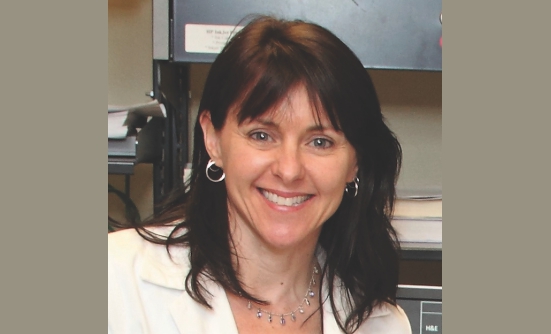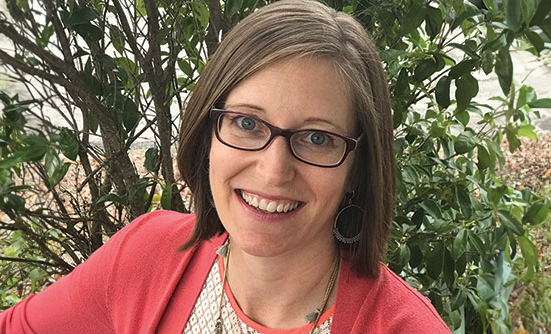
When we think about cancer treatment, we may think of medications, treatment plans, visits to an oncologist, and even telehealth appointments. But how often do we think about ensuring that the patient is well-nourished?
Malnutrition is a major problem in our healthcare system, particularly among patients who are receiving cancer treatment. Studies have shown that up to 80% of patients with cancer are malnourished at some point during their treatment,1,2 a number that should be a wake-up call for doctors and other healthcare providers.
Gap in Nutrition Care for Patients with Cancer
There is a significant gap in access to nutrition care for patients with cancer. A recent national survey published in the Journal of Oncology documented that for every 1 registered dietitian in the 215 outpatient cancer centers included in the study, there were more than 2,300 patients who were receiving treatment.3
Such a ratio between patients and nutrition experts is untenable and highlights the need to close the serious gap in access to nutrition care for patients with cancer. This recent national survey was led by the Oncology Dietetic Practice Group of the Academy of Nutrition and Dietetics and included researchers from several cancer institutions across the country.
The researchers also evaluated the staffing patterns of registered dietitians, nutrition services provided in outpatient cancer settings, malnutrition screening patterns, and referral and financial reimbursement support specific to outpatient cancer centers, where the majority (more than 90%) of patients with cancer currently receive treatment in the United States.
Key findings from the survey show that3:
- Just 53% of outpatient cancer centers screen patients for malnutrition, and of those, only about 64% use a validated malnutrition screening tool.
- On average, registered dietitians effectively counsel between 7 and 11 patients every day, which means they don’t have adequate time and resources to provide care to all the patients who request nutrition counseling.
- Nearly 77% of cancer centers don’t bill health insurance companies for these nutrition services, because such services are typically not reimbursed by private or public insurance companies for outpatient services, which limits the ability of cancer centers to provide appropriate nutrition counseling to patients.
Malnutrition & Cancer
These findings represent a significant barrier to full integration of nutrition in the oncology care team, and we realized that it was necessary to assess a paradigm shift. Proactively addressing malnutrition among our patients with lung cancer could be an important step toward improving patient care and health outcomes.
Nutrition is a critical component of cancer treatment and is integral to maintaining a high quality of care.
Malnutrition is associated with poor health outcomes for patients with cancer, including decreased quality of life, reduced tolerance to cancer therapy, treatment interruptions, increased treatment side effects, and increased mortality rates, among others.3-5
Identifying patients with cancer who are at risk of malnutrition must be a priority. It’s critical to provide patients adequate nutrition care, and registered dietitians are uniquely trained to support patients with cancer. However, those nutrition specialists must be integrated into the patient’s cancer care team from diagnosis to identify those at risk for malnutrition and to help alleviate symptoms of nutrition deficiencies throughout the course of treatment.
In addition, we know that more than half—or an estimated 70%—of patients with lung cancer are considered malnourished at some point during their treatment.
We also know that oncology registered dietitians can improve patient adherence to treatments and promote optimal nutritional status throughout the cancer continuum. Dietitians have a thorough understanding of the complex mechanisms of carcinogenesis (the development of cancer), along with specialized training in medical nutrition therapy and behavioral counseling, all ensuring that patients (and caregivers) are supported along their cancer journey.
To be able to reach optimal nutrition care, we need more oncology dietitians integrated into the cancer care team, to ensure that patients with cancer receive ongoing nutritional support to counter malnutrition and maintain their nutrition needs.
Our Nutrition & Lung Cancer Study
That’s why we at The Ohio State University Comprehensive Cancer Center, together with 3 other cancer centers across the country and Fang Fang Zhang, MD, PhD, of the Friedman School of Nutrition Science and Policy at Tufts University, launched a new clinical trial in December 2019 to investigate ways of reducing malnutrition among patients with lung cancer. The study is currently enrolling patients after a short delay during the height of the COVID-19 pandemic, and is supported by a grant from the Bristol Myers Squibb Foundation.
Our nutrition-based national clinical trial is focused on patients with lung cancer—the number 1 cause of cancer-related deaths among men and women in the United States. More people die of lung cancer in the United States each year than of colon, breast, and prostate cancers combined.
This study includes patients with lung cancer who are vulnerable and are at high risk for malnutrition. Through this study, these at-risk patients are receiving weekly individualized nutritional counseling and home-delivered medically tailored meals to prevent malnutrition and promote optimal nutritional status.
So far, our clinical trial has recruited half of the 150 patients with lung cancer we aim to enroll in this study. Many of our high-risk patients are older, food-insecure, residents of rural areas in the United States, and many have no private health insurance.
The patients in the intervention group receive weekly individualized nutrition counseling and home-delivered, medically tailored meals. These meals are designed by registered dietitians to support the patient’s individualized nutrition needs during each stage of treatment.
The study offers 11 different meal plans, including soft diets, high-calorie or high-protein meals, menus for patients who have diabetes, and others. These meals provide the patient with breakfast, lunch, dinner, and snacks for 8 weeks, and these meals are then reduced over the next 16 weeks.
The goal of the study is to test the efficacy (benefit) of fully integrating nutrition into cancer care for very high-risk patients with lung cancer. The goal is to help patients maintain optimal nutritional status, and help them remain physically and mentally strong throughout the course of their cancer treatment and survivorship after treatment.
Over the 8-month study period, we measure outcomes at 3 time points. Measurements include the patient’s weight changes, dietary intake and diet quality, food security status, treatment-related side effects, treatment interruptions, hospitalizations and lengths of stay, quality of life, depression, and anxiety, among others.
Our hope is to highlight an issue that rarely receives the publicity and notoriety it should. With the resources available to most healthcare systems, patients with cancer should have access to a treatment team that can assist in addressing malnutrition while they fight this difficult battle. It is our responsibility, as healthcare professionals, to provide a comprehensive team of experts to ensure that all patients have the best chance to succeed.
References
- Ryan AM, Power DG, Daly L, et al. Cancer-associated malnutrition, cachexia and sarcopenia: the skeleton in the hospital closet 40 years later. Proceedings of the Nutrition Society. 2016;75(2):199-211.
- von Haehling S, Anker SD. Cachexia as a major underestimated and unmet medical need: facts and numbers. Journal of Cachexia, Sarcopenia and Muscle. 2010;1(1):1-5.
- Trujillo EB, Claghorn K, Dixon SW, et al. Inadequate nutrition coverage in outpatient cancer centers: results of a national survey. Journal of Oncology. 2019. www.hindawi.com/journals/jo/2019/7462940/.
- Arends J, Bachmann P, Baracos V, et al. ESPEN guidelines on nutrition in cancer patients. Clinical Nutrition. 2017;36(1):11-48.
- Marín Caro MM, Laviano A, Pichard C. Nutritional intervention and quality of life in adult oncology patients. Clinical Nutrition. 2007;26(3):289-301.
Key Points
- Nutrition is a critical component of cancer treatment and is integral to maintaining a high quality of care
- Recent studies have shown that up to 80% of patients with cancer are malnourished at some point during their treatment, which should be a wake-up call to doctors
- There is a significant gap in access to nutrition care for patients with cancer
- A recent survey showed that only 53% of outpatient cancer centers screen patients for malnutrition
- A nutrition-based clinical trial is investigating ways to improve the nutrition status of high-risk patients with lung cancer, the number 1 cause of cancer-related deaths in the United States
- Patients with cancer should have access to a treatment team that can address any malnutrition issues
About the Author
Dr. Spees serves on the Executive Committee for the Academy’s Oncology Nutrition Dietetic Practice Group, a Member of the American Cancer Society Scientific Guidelines Panel on Nutrition and Physical Activity for Cancer Prevention and Survivorship, and the recipient of several awards, including the Award for Excellence in Oncology Nutrition Research.












